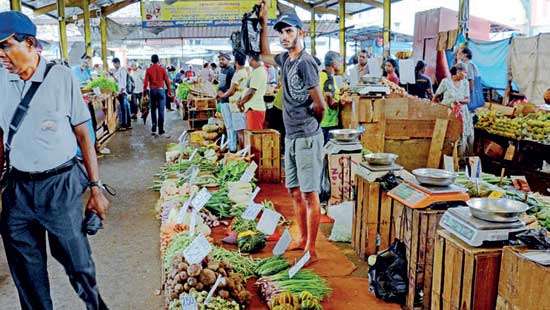Reply To:
Name - Reply Comment


The pace of increase in the prices of goods and services consumed by the people, measured at a national level, saw reaccelerating in December, due to sharp increases in most of the food prices, which more than offset the softened non-food prices, largely on the back of the somewhat eased energy cost.
Inflation, measured by the National Consumer Price Index, rose by 1.4 percent in December 2023 from a month earlier, as the prices of everyday goods such as rice, vegetables, chicken and many varieties of staples rose sharply during the month.
Inflation measured on an annual basis also rose by 4.2 percent in December 2023, up from 2.8 percent in November and the highest since July last year, as inflation is entering into a new era after the Central Bank crushed the ugliest inflation spiral by the middle of last year.
Meanwhile, the so-called core prices, measured stripping out the often volatile items such as food, energy and transport, rose by 0.9 percent in December from a year ago, edging up from 0.8 percent a month earlier.
According to inflation measured by the Colombo Consumer Price Index, the officials’ most preferred gauge of inflation, which is released three weeks earlier than the national prices, logged at 4.0 percent in December, rising from 3.4 percent, signalling the upward trend in the prices in the economy once again.
The food prices, measured by the National Consumer Price Index, rose sharply by 3.6 percent in December, doubling the pace from a month ago, while the annual food prices also followed suit, with a 1.6 percent gain, ending the months-long deflation. Meanwhile, the non-food prices declined by 0.3 percent in December from a month ago, mostly due to the amelioration in the energy and related transport costs, while the annual prices decelerated to 6.3 percent, from 7.1 percent in November.
While the consumer prices typically has a tendency to make an uptick towards the year-end, due to the festive demand kicking in, the country’s inflation is set to accelerate from this point onwards, sparked by supply-led concerns and the transitory effects from the recently hiked Value Added Tax, which raised the prices of almost all goods and services, without letting the people to catch a breath even after being hammered for years with runaway inflation.
Meanwhile, the global geopolitics are also heating up, with the tensions rising in the Red Sea, a key shipping route that could threaten the relative stability achieved in global energy and other commodities prices, after years of upheaval caused due to the pandemic and Russia’s invasion of Ukraine.
However, the Central Bank reiterated that it would maintain the headline prices at around 5.0 percent level in the medium term.
The Central Bank is widely expected to leave the key policy rates unchanged this time, as the year’s first monetary policy was to be released yesterday, partly due to the said concerns coming from the supply side.